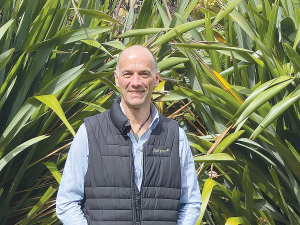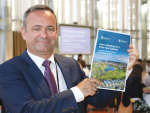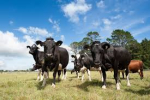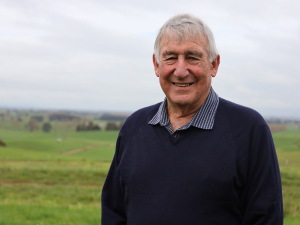Developing woodchip denitrifying bioreactors for mitigating nitrogen loads to New Zealand waterways won DairyNZ and the Institute of Environmental Science and Research (ESR) the research and science category in this year's Primary Industries NZ Summit Awards.
The win recognises the work DairyNZ - led by senior scientist Dr Lee Burbery - has done in partnership with ESR over the past 10 years to research the 'edge-of-field' practice.
DairyNZ chief executive Campbell Parker says the award highlights the organisation's scientific expertise, which lends itself to world-leading research.
"Credible science is our point of difference. We take a collaborative approach to science and research, to help farmer get ahead of environmental challenges. The evidence we gain from our science and research also underpins our advocacy on behalf of farmers to achieve fair and pragmatic policy outcomes - and helps build trust across the sector."
Bioreactors are pits filled with woodchip that act as a water filter and support denitrification - where bacteria convert reactive nitrate nitrogen to innocuous nitrogen gas as part of their respiration process.
Burbery says a woodchip bioreactor's role is primarily to treat nitrate, yet their research has shown they can also filter for contaminants such as phosphorus and E. coli.
"So, there are secondary benefits. This aligns with DairyNZ's holistic approach to farm systems management and waterway health."
By seeking to foster a more holistic view of waterway health, DairyNZ's Healthy Waterways programme aims to inform sensible and pragmatic regulations that will enable farmers ongoing stewardship of the land.
Burbery - who has a PhD from the school of environmental science at Lancaster University in the UK - has spent most of his 25-year science career working on New Zealand groundwater resource management issues.
He came to New Zealand from England in 2005 as a postdoctoral fellow at Lincoln University, to research and develop a practical way to measure nitrate reaction rates in groundwater.
He started with DairyNZ in 2021 after nine years as a senior groundwater research scientist at ESR.
The research and science award recognises scientists and/or researchers based in New Zealand who have developed new processes/initiatives or made discoveries that add value to New Zealand's primary industries.











